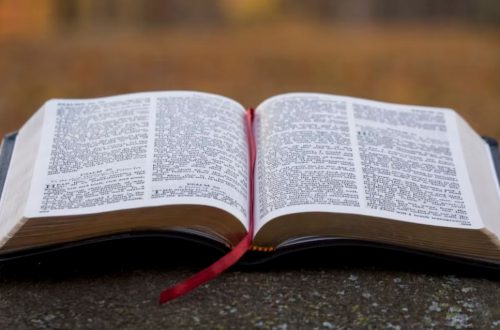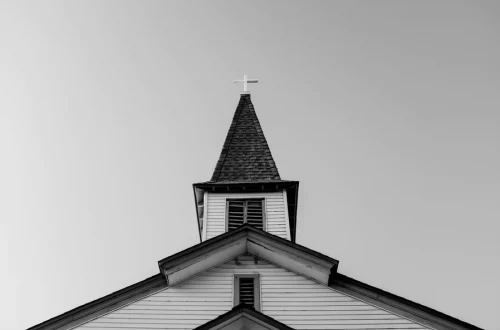The headlines coming out of the Vatican yesterday are nothing less than eye-popping. Here’s just a handful:
- Washington Post: Vatican stuns Catholic world with greater openness toward gays and lesbians
- USA Today: Catholic bishops show new tolerance toward gays
- ChristianToday.com: Synod on the Family: Could the Catholic Church be liberalising on divorce, contraception and homosexuality?
- Huffington Post: Vatican Proposes Dramatic Shift In Attitude Towards Gays, Same Sex Couples
- New York Times: At the Vatican, a Shift in Tone Toward Gays and Divorce
What is going on here? Did the Roman Catholic Church really just nullify its 2,000-year old teaching on the nature of marriage and sexual ethics? If all you had were these headlines, you might think so.
The questions have emerged as a result of a meeting of Bishops that Pope Francis convened last week and that just issued a report. Having read the entire report, I think we can answer the question that everyone is asking: Has the Catholic Church changed its position on divorce and gay unions?
The short answer is no. The synod reaffirmed what Roman Catholics have always believed about marriage, sex, and family. It insists that the “doctrine of the faith” must be affirmed (§11) and that “natural marriage” is still the norm (§18). The synod reconfirmed “forcefully the fidelity to the Gospel of the family” (§40). On homosexuality, the synod says “that unions between people of the same sex cannot be considered on the same footing as matrimony between man and woman” (§51). In essence, the synod did nothing to overturn the official doctrine of the Roman Catholic Church as it is spelled out in the catechism.
But this does not mean that document is without serious problems. Perhaps the chief issue is that the bishops are trying to teach church leaders how to make “courageous pastoral choices”—choices which seem to contradict what the church says it believes in the catechism. Perhaps this tension is seen most clearly in the section on homosexuality. The English translation includes the following lines:
Homosexuals have gifts and qualities to offer to the Christian community: are we capable of welcoming these people, guaranteeing to them a fraternal space in our communities? Often they wish to encounter a Church that offers them a welcoming home. Are our communities capable of providing that, accepting and valuing their sexual orientation, without compromising Catholic doctrine on the family and matrimony?
As a Protestant, I would agree that churches need to be welcoming to gay people. And by that, I mean that we need to have our arms wide open to gay people, to invite them to come to Christ on the same basis everyone else does—through repentance and faith. We invite all people—including our gay neighbors—to come and to drink from the waters of life. This invitation to join us is a summons to conversion.
But that is not what this document has in mind when it talks about “welcoming these people.” In fact, I’m not sure that conversion is at all in view here. The synod seeks for a way to value gay “sexual orientation” without abandoning “Catholic doctrine.” But here is the contradiction. The church’s doctrine says that gay orientation is “objectively disordered.” Yet these bishops are calling for a pastoral practice that values their sexual orientation. Unless something has been lost in translation, that is a hopeless contradiction—one that undermines the confession that Roman Catholics claim to uphold.
What should cause concern is the possibility that some within the Roman Catholic church wish to maintain the language of the catechism but adopt pastoral practices that contradict it. This enables them to say that the church’s teaching has remained constant and that the only change is in how it is applied in people’s lives. But in this case, that distinction doesn’t work. One cannot value something and at the same time repent of it, and yet that is what this synod appears to be calling for. Most people (I think) can see the contradiction.
In my view, the problem with this statement from the synod is not so much ethical as it is soteriological and ecclesiological. This announcement highlights the fact that the differences between Protestants and Catholics are still with us and are still profound. The idea of gradualism is no doubt bound up with Roman Catholic notions of progressive justification. That error is compounded by the inclusivist tendencies of Vatican II. The main errors of this document relate directly to longstanding differences between Protestants and Catholics on fundamental issues of authority, the nature of salvation, and the nature of the church. I do believe there is important error here, it’s just not quite in the way suggested by the headlines.
So has the Roman Catholic Church changed its teachings on homosexuality and divorce? At the level of official Catholic doctrine, the answer is no. The teaching of the Catechism has not changed. But at the level of pastoral practice, they may have accomplished a de facto revision. I think we have to watch and see what the final statement from this synod will be and how the implications play out in the actual practice of the church. If it turns out to be a de facto revision, it will be an enormous capitulation to the spirit of the age. The world is watching. We’ll all know soon enough.




20 Comments
Robert Karl
Denny:
You are correct about no change in the Catholic faith beliefs. This does not in any way change the Chruch’s belief in marriage, sex and morality.
But what is going on with Pope Francis. One only has to look at his Cross hanging on his neck. The Cross shows Jesus as the Good Shepherd with the Lost Sheep. Francis is going afetr the lost sheep and bringing them back to the Church. Francis is priest of the Order of the Sociey of Jesus–that is their job.
Denny, your good friend and the late Fr. Richard John Neuhaus stressed that the most important issue for the Church is Christian Unity. This is not one of a position of power but one of weakness–the Church is missing a vital part–you– a lost sheep.
Paul Reed
Their position hasn’t changed, if you define a change as only going to full 180 degrees. Rather, they’ve swung another 15 degrees toward normalizing homosexuality. It probably won’t get noticed all that much. One doesn’t suddenly one day move from a no-tolerance position on homosexuality to officiating gay weddings. It’s gradual. But when a historian looks back on what the average catholic thinks of homosexuality in 1990, verses their position in 2030, they’ll see a whopping difference.
Denny Burk
Hey, Paul and Karl. I’ve updated my post with further reflections about this document. At the level of official Catholic doctrine, nothing has changed. But now I’m wondering if they synod is advocating “courageous pastoral choices” that might amount to a de facto change. I guess we’ll see.
Christiane Smith
Hi DENNY,
just three small comments:
1. this was a preliminary gathering of the Church’s bishops . . . they will re-convene in future to elaborate on the topics brought up in much more detail in the collegial spirit of the Church’s bishops in communion.
2. I think you are right about ‘changes’, but that this was stated in the report so openly and clearly, I found refreshing and also something that all persons of every persuasion can understand who live with a ‘significant other’ even if they disagree with the content of this portion: ” Without denying the moral problems connected to homosexual unions it has to be noted that there are cases in which mutual aid to the point of sacrifice constitutes a precious support in the life of the partners.” In short, the Church has compassion for all who need the support of loved ones, and the Church has understanding and admiration for all those who give of themselves in service to another; and that this is understood in the context of a homosexual union which the Church regards as morally disordered, still it is an open admission of praise for self-sacrifice in caring for another.
3. In the Church, there is no condemnation of a person as a ‘sinner’ who has a homosexual orientation, as the Church does not hold to the same understanding as the fundamentalist evangelical position that such an orientation is always chosen
. . . the Church does not sanction homosexual unions between partners. Many Catholic people who are homosexuals live celibate lives and participate fully in the life of the Church. This conference was to openly invite the bishops to discuss ALL aspects of the family lives of people who are ‘wounded’ but still have so much to offer the Church; and that is WHY it was asked that the bishops keep their eyes on the Face of Christ during the discussions, so that His compassionate way with injured people is strongly reflected in their work above all else.
sorry for length . . . hope this helps the conversation
Jean (Oliver) Klughart
Thanks Denny. When I heard the headlines yesterday I was thoroughly confused. So contradictory! Appreciate you unpacking it here!
Robert Karl
Christine is correct. There will be no defacto change. This teaching is always the teachings of the Church. Christine is correct on the ho the Church views a homosexual orientation vs the sin of active homosexuality–A good exampel of this is Fr.Mychal Jodge the saint of 09/11–a celibate homosexual and a recovering alcoholic who is a Catholic priest.
I think there will be changes on the annulment process to streamline and correct the issues but not change of doctrine.
Always remember that Francis takes the position of the Good Shepherd looking for lost sheep.
James Bradshaw
The Vatican was attempting to show a sense of nuance and human decency by recognizing that gay men and women have “positive qualities” and that even their relationships can reflect self-sacrifice. These seem like self-evident facts to me.
Why is it necessary to go the Scott Lively route and portray all gays as Nazis and their relationships as entirely worthless, evil and subhuman?
Rob Johnson
The ONLY Good Shepherd is Jesus Christ. “My sheep hear My voice..”
Brian MacArevey
I think that James Bradshaw (above) hit the nail on the head. It might also be accurate to say that the RCC is merely recognizing that human beings can not be reduced to their sexual orientation. This is good and true, I believe. Being gay does not negate the other qualities of an individuals life that the church can find value in.
Gil Brady
I am thankful for the leadership of Pope Francis. The question of sexual orientation is one in need of honest dialogue and prayerful reflection. I am confident that the church will recognize the value and legitimacy of same-sex relationships and same-sex unions at some point. Change is slow, however, it seems clear that love and justice wins in the end.
Christiane Smith
Hi GIL,
I am with you in being grateful for the leadership of Francis. I think he is asking for the whole Church to recognize and respect the basic dignity of all human persons and to understand that a person cannot be defined totally by their sexual orientation. Change is coming. But I think it is more on the order of increased respect for those who do have differences so that they will not be excluded from our family by some ‘label’ that a culture warrior may pin on them. I think the change is going to be a new direction for ministry to those whose families are ‘different’ from the norm . . . divorced, remarried, same-sex unions . . . especially because the participants in those families are ‘ours’ to love as brothers and sisters, and their children are as dear to the Church, regardless of the family ‘circumstances’ . . . it’s the TONE Francis is changing and he has pushed a reset button in calling the bishops together to openly face, question, comment and PRAY about the needs of ALL of our people . . . how best are they to be served? to be included into the Church’s life with all their gifts and talents ?
As to the ‘natural law’ and the concept of marriage as ‘being open to new life’ . . . that is something that I can’t see changing AS SUCH . . . but Francis is not shutting the door on people any more and its his humility before the Lord that has shamed and angered those who have done it. He is calling the Church to think, and discuss, and pray, and in keeping their eyes on Christ as they do this, Francis is trusting that only good may come.
Gus Nelson
Saying people have positive qualities means what exactly? An adulterer who gives lavishly to those who have less than him is no less an adulterer. So when this man comes to church do we simply look the other way, even though we know of the adultery just because he gives lavishly to others? If you want to say that homosexual behavior simply isn’t sin, fine. But then there is no need to talk about “positive qualities” since this would be irrelevant to this discussion of the church’s relationship with homosexuals. This is the inherent contradiction – if it’s sin then the positive qualities don’t ameliorate the sin. The church must insist the sinner come repenting or the positive qualities are no different than a purely secular person doing exactly the same thing. The positive qualities only matter in relationship to glorifying God. If one remains unrepentant, it seems quite difficult to see how those positive qualities matter at all. The church does no favors to anyone by trying to sit on the fence.
James Bradshaw
Gus, the question is a pastoral one, not doctrinal. Should heterosexuals who are remarried or who use contraception be asked to leave the church? Btw, I think these are better analogies than yours. Adultery necessarily involves betrayal and dishonesty. One can’t approach all those who fail to live up the pristine Christian ideal the same. As I said: nuance.
Gus Nelson
James: If you are suggesting that any sinner should be addressed in a pastoral manner, then I agree with you. However, addressing sin will always be a doctrinal issue.
buddyglass
For what it’s worth, certain prominent conservative Catholics sure seem to think it’s a big deal.
Robert Karl
Yes, Rob. Jesus is the Good Shepherd. Jesus also made disciples. Jesus to;ld his disciples shorlty before his death–to love one another as He has loved them. In particular to St.Perter tolove and feed his sheep and most imoprtatntly to follow Him.
Rob, Do not be afraid.
Jude -Marie
Jude Marie
God is alive and active. The Holy Spirit leads, advocates, defends and it’s the Truth itself. Let us not like the elder brother in the story of the prodigal son see reason for the Father’s forgiveness. We have to like the Father, go out to meet the son but that in no way encourages homosexuality.
When homosexuals are around us, our good and true Christian behavior may cause them to have a rethink of their lives and change
Pingback:
Pingback:
Pingback: